PM Imran begins 'fence-mending' visit to Iran
Imran will meet supreme leader Khamenei, hold formal talks with President Rowhani
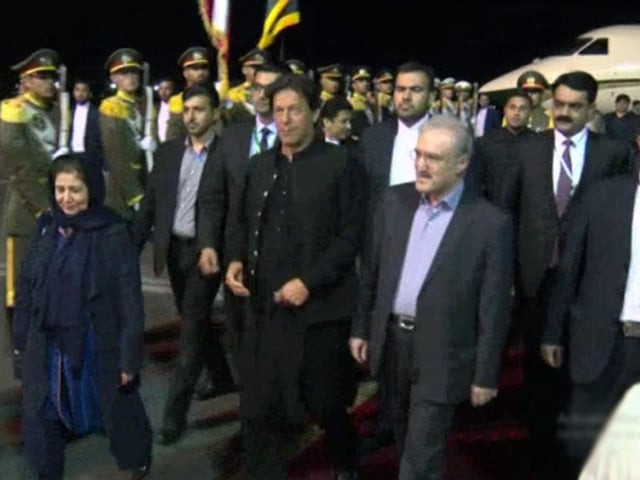
Prime Minister Imran Khan on Sunday began a two-day crucial trip to Iran amid tensions between the two neighbouring countries following the recent terrorist attack in Ormara, Gwadar, which Pakistan said ‘originated from Iran’.
The prime minister arrived in Tehran after a brief stop-over in Mashhad on the invitation of Iranian President Hassan Rowhani.
As the prime minister landed at Mehrabad Airport of the Iranian capital city along with a high level delegation, he was received by Health Minister of Iran and minister-in-waiting Dr Saeed Namaki, a PM Office statement said.
A smartly turned out contingent presented a static salute to the prime minister.
Earlier, Khorasan-e-Razavi province Governor General Ali Reza Razm Hussaini received PM Imran upon his arrival at Shahid Hasheminejad International Airport, Mashhad, reported the state-run Radio Pakistan.
During his visit, the PM will meet Iran’s supreme leader Ayatollah Ali Khamenei and hold formal talks with the Iranian president. He is also scheduled to meet members of the Iranian and Pakistani business community in Iran.
This is the first visit of Imran to Tehran since he became the prime minister in August last year and is being watched closely because of a number of factors, including Pakistan’s deepening ties with Saudi Arabia, which is at odds with Iran.
But the recent terrorist attack in Ormara in which an alliance of Baloch terrorist groups killed 14 people, including security personnel, is likely to dominate discussions between PM Imran and the top Iranian leadership.
A day before the prime minister’s departure, Pakistan lodged a strong protest with Iran on its inaction against the group responsible for the attack along the Makran Coastal Highway in Balochistan last week.
Foreign Minister Shah Mehmood Qureshi told a news conference in Islamabad that Pakistan had evidence the “terrorist outfits” that carried out the attack in the Bozi Pass area near Ormara, had “training and logistic camps inside Iranian areas bordering Pakistan”.
Last Tuesday, a passenger bus – travelling between Karachi and Gwadar – was stopped by around 25 unidentified attackers, donning Frontier Corps uniforms. The terrorists checked the identity cards of the passengers before offloading them. Later, the victims were shot dead execution-style.
In a letter to the Iranian embassy, the foreign minister demanded Tehran’s action against the banned outfits operating from its soil. “Several times in the past, demands had been put forward to Iran to take action against the banned outfits,” the letter stated, adding that despite being informed by Islamabad’s intelligence apparatus, Iran took no action against the terrorist entities.
Qureshi later told reporters that Pakistan “is angry about the attack” and called for Iran to “take action against BRAS [Baloch Raji Aajoi Saangar] militants”.
He added that he spoke to his Iranian counterpart Mohammad Javad Zarif and conveyed to him the “anger of Pakistani nation”.
The Iranian foreign minister, Qureshi said, condemned the dastardly act and described it as an attack not only on Pakistan but also on Iran. “The Iranian foreign minister assured us of full cooperation in tracing these elements,” he added.
The foreign minister said that Pakistan has shared “actionable evidence” with Iran about the terror groups operating from the Iranian soil and expressed his confidence that Tehran would take visible action against the outfits operating from Iranian soil for terrorist acts in Balochistan.
“The training camps and logistical camps of this new alliance [BRAS]…are inside the Iranian border region,” Qureshi told reporters. “We have shared this actionable evidence with Iran after due authentication and identified location of the camps.”
However, Qureshi made it clear that despite the terrorist attack, PM Imran would visit Iran as planned. He warned that although relationship between the two countries had shown improvement in recent months, spoilers could still undermine the bilateral ties.
While Pakistan has its own list of grievances, Iran is also not happy with Islamabad due to recent border incidents as well as terrorist attack in Iran killing scores of Revolutionary Guards personnel.
The terrorist attack that took place in February prompted Iran to point a finger at Pakistan for being behind the attack.
However, the two countries, through back channel diplomacy, tried to address each other’s concerns. And there was some forward movement after Pakistan recovered the abducted Iranian border guards last month.
PM Imran also spoke to Iranian President Rowhani, assuring him that Pakistan would not allow its soil to be used against the neighbouring country.
Those contacts helped the two sides finalise the maiden visit of PM Imran to Tehran.
Iran is also reportedly concerned over Pakistan’s deepening ties with Saudi Arabia, which extended financial assistance to the current government.
In February, Saudi Crown Prince Muhammad bin Salman visited Pakistan and pledged investment of billions of dollars particularly in Balochistan, something that Iran views with suspicion.
Officials familiar with the visit told The Express Tribune that the prime minister would convey to the Iranian leadership in categorical terms that Pakistan’s close ties with Saudi Arabia were not aimed at Iran.
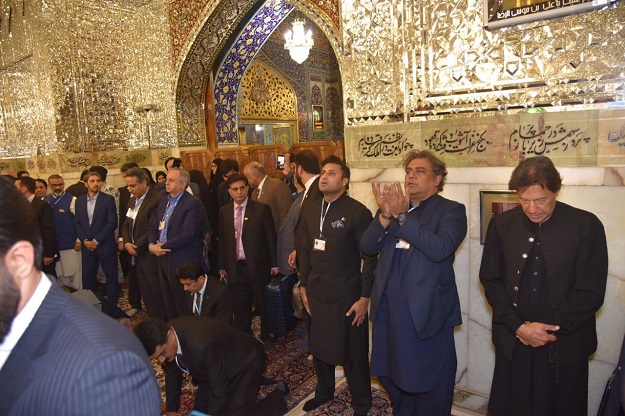 PHOTO: EXPRESS
PHOTO: EXPRESS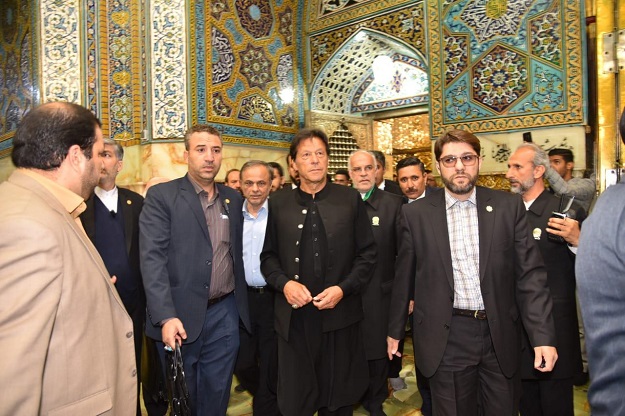 PHOTO: EXPRESS
PHOTO: EXPRESS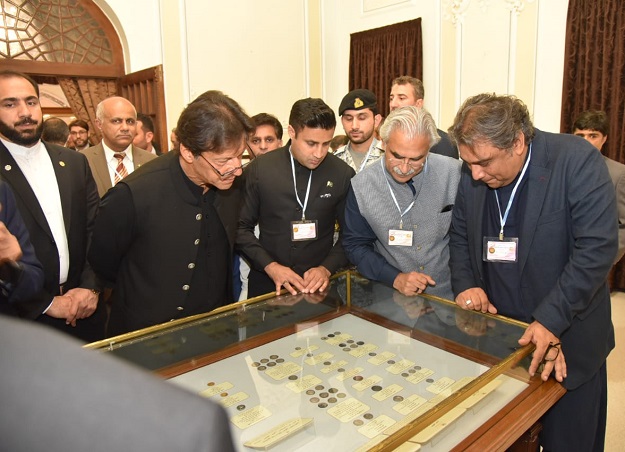 PM Imran visiting Museum of Holy Quran in Mashhad. PHOTO: EXPRESS
PM Imran visiting Museum of Holy Quran in Mashhad. PHOTO: EXPRESS


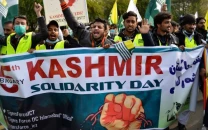

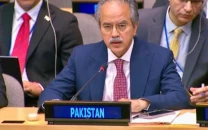
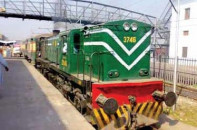













COMMENTS
Comments are moderated and generally will be posted if they are on-topic and not abusive.
For more information, please see our Comments FAQ